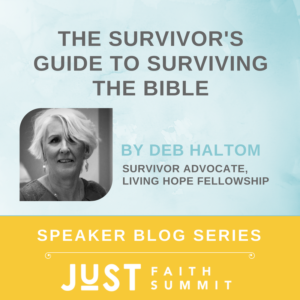**This is the second guest blog in a series of posts by the 2018 JuST Faith Summit speakers. Check back for new posts highlighting the critical topics that will be featured at this year’s Faith Summit. Join us, June 20-22 at Bethel University in St. Paul, Minnesota, for this exciting Summit. Visit this link to see the full agenda and lineup of speakers.
By Christopher Stollar
Demand Reduction Coordinator, She Has A Name & Author of The Black Lens
Why do men solicit? That’s a complex question, but one we must strive to answer if we’re ever going to reduce the demand for sex trafficking. While some women pay for sex, the fact is, most of that demand is coming from men who struggle with multiple, complex issues.
[easy-tweet tweet=”Why do men solicit? That’s a complex question, but one we must strive to answer if we’re ever going to reduce the demand for sex trafficking. ” user=”sharedhope” hashtags=”FaithSummit2018″]
As the Demand Reduction Coordinator for She Has A Name, I have personally taught dozens of these men through a “John School” program in Ohio. This all-day class is run by licensed counselors, survivors of sex trafficking and other people from the community. It targets men who are mostly first-time offenders with no record of violence.
Why a John School?
The goal of this class and similar programs is to “decrease the demand for prostitution, and hence, reduce the amount of human trafficking and sexual exploitation that occurs,” according to the Ohio Department of Public Safety’s John Schools Report. As of 2013, 50 cities in the United States were operating some form of a John School — including four in Ohio.
She Has A Name is trying to help these men understand the impact of their actions and address the root causes that drove them to solicit. This program aligns directly with our vision — “to see all those impacted by human trafficking restored into society and thriving in their community.” That includes men, even those who solicit.
One of the young men I taught told me he decided to solicit because for years he had been battling loneliness and depression, and “these struggles led me to make the worst decision of my life … Thankfully, I was arrested and stopped short of making a horrible mistake.”
[easy-tweet tweet=”One of the young men I taught told me he decided to solicit because for years he had been battling loneliness and depression, and “these struggles led me to make the worst decision of my life.” user=”sharedhope” hashtags=”FaithSummit2018″]
Why did these men solicit?
That young man is not alone. She Has A Name started collecting data in 2016 on why these specific men decided to solicit, and below is a list of reasons they have given so far in order of the most common response — including “loneliness and depression:”
- Lack of intimacy: 24 percent
- Loneliness: 24 percent
- Depression: 14 percent
- Pornography: 10 percent
- Lust: 10 percent
- Lack of discipline: 5 percent
- Sexually abused: 5 percent
- Stress: 5 percent
- Low sex drive: 5 percent
As you can tell, the reasons men solicit are complex and varied. It’s not just about porn or sex addiction. For at least these men, there are deeper issues of intimacy, depression and loneliness. Of course we should never treat those reasons as excuses or justifications for their crime, but they can help us understand what’s going on behind the scenes with some men so we can point them to helpful solutions.
Has the John School helped?
Almost 200 men have completed the John School program, and we already have once success story. That young man I mentioned graduated from the program, attended She Has A Name’s anti-trafficking training and has since joined a local church. Last year he sent me this letter of encouragement:
“Since this was my first offense and what will be my last, I was allowed to participate in the John School. I knew going into the program that I wanted to get involved in the fight against human trafficking, but after participating in the program I knew I had to. The program opened my eyes to the world of human trafficking and in my heart I knew I wanted to help in anyway possible.
Through my experience I found a relationship with God and gained a better understanding of the awful world of human trafficking that prior to this experience, I knew nothing about. I wish more than anything I could take back my mistake but in a strange way it’s made me a better person. I now know I can move forward and raise awareness with dreams of ending this horrible issue.”
There are at least nine reasons why men solicit, but this young man’s story is all the reason we need to keep fighting the battle against modern slavery. He is living proof that God can turn even a solicitor into an abolitionist. And at the end of the day, that’s what this fight is all about.
What can I do to help?
Here are three practical ways you can help right now:
- If you are struggling with any of the issues listed above or know someone who is, find help through a local counselor and/or church support group
- Support the work of demand reduction groups like Demand Abolition, Fight the New Drug, XXXChurch and Covenant Eyes
- Attend the 2018 JuST Faith Summit and learn more about this issue in my 9 Reasons Why Men Solicit session
For more information about demand reduction, visit She Has A Name’s website. You can also learn more about Christopher Stollar and his work at http://christopherstollar.com/.
[clear-line]
 By Christopher Stollar
By Christopher Stollar






